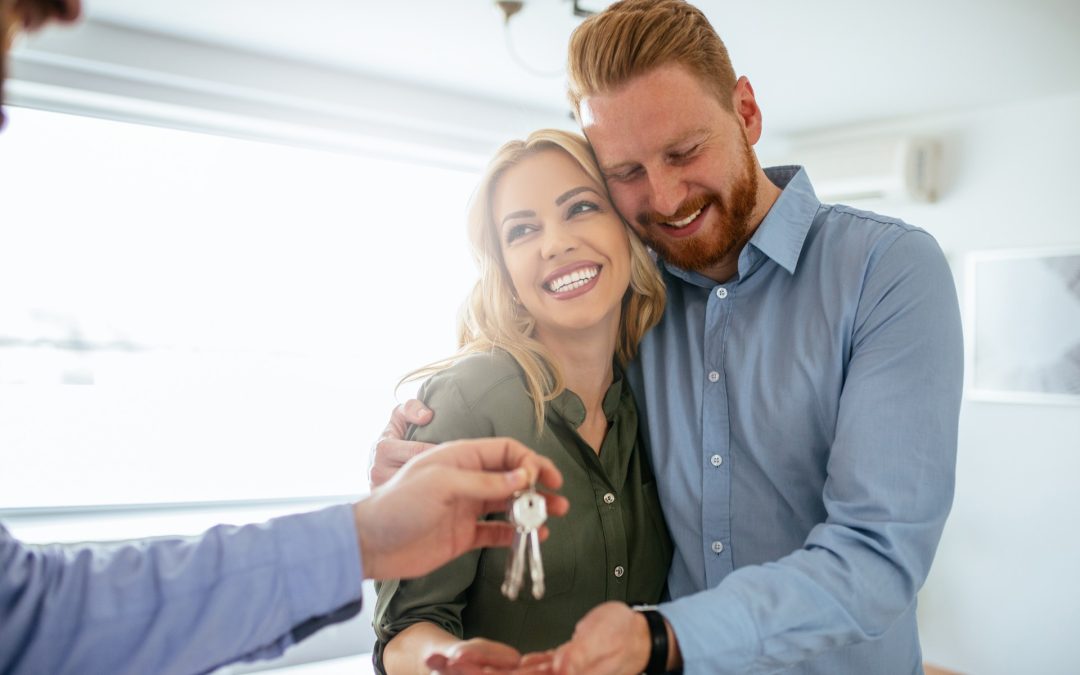You’ve had an offer accepted on a house. Congratulations! It’s an exciting time and you’ll want to get the wheels moving on the next stages so you can move in to your lovely new home.
So what’s involved on the legal side? In this blog, we give you a quick run down of what happens after your offer has been accepted.
Step 1: Instruct a solicitor or a conveyancer
The first step is to instruct a solicitor who specialises in residential property law. They’re often called ‘conveyancers’, who are specialists in the legal aspects of transferring ownership of a property. Many conveyancers are also qualified solicitors.
For the sake of this blog, we’ll refer to ‘solicitors’, but a conveyancer will take all the same steps.
Once you’ve found a solicitor or conveyancer, they will ask for proof of identity and they may also ask you for money on account to pay for disbursements like the search fees.
You’ll receive a letter of engagement from the solicitor which sets out the scope of their work and the fees they expect to charge.
Step 2: The searches
Your solicitor will then conduct searches. These searches will highlight important information about your property, that isn’t necessarily obvious when you view it. Things like:
- Planning consents: Are there planned works in the near future? This could include nearby redevelopments or road schemes that might affect your local area, including government plans, like HS2.
- Flooding and Drainage: How likely is it that your property will be affected by flooding?
- Subsidence: If the land near your property was previously used for mining or other physical work, your house could be at risk of subsidence.
- Title: Is the seller the current legal owner of the property?
Searches are an important part of the house-buying process because they highlight hidden risks that may affect the price of the property, or your choice to go ahead with the purchase.
Step 3: Enquiries
Your solicitor will raise formal enquiries with the seller’s solicitor. The purpose of this stage is to find out everything you can about the house that you’re buying. Similar to the searches stage, the enquiries might unveil an issue that reduces the purchase price, or makes you reconsider whether you want to buy the house at all.
The sorts of enquiries your solicitor will ask include:
- Planning consents: if the searches revealed a planned development, you might ask the seller what they know about it. How is it going to affect the property? Is there any compensation?
- Gas safety certificate: Most sellers are able to produce their gas-safety certificate that verifies that the boiler and other gas appliances have been checked and certified. It’s usually a run-of-the-mill question, but it’s worth getting the peace of mind.
- Leasehold: If the property is leasehold, what are the maintenance charges and ground rent? Are there any restrictions in the lease?
- Fixtures and fittings: Will the seller leave anything in the property? This can include the big things like fridges, freezers and washing machines, right down to the smaller details like curtains, rugs, and tables. You don’t have to accept everything that the seller is offering to leave. You can pick and choose and the seller may request additional payment for the things they leave.
- Restrictions on the property: Some properties are subject to covenants and easements. Your solicitor will find out if there is a risk that these have been breached and what the consequences are. It’s possible to insure against these risks if you need to.
Step 3: Paying your deposit
This bit feels a bit scary! It’s probably the largest amount of money you’ve ever transferred anywhere. But don’t worry, it’s going to be safe and secure in your solicitor’s client account. Your solicitor will give you the details of their client account, and you transfer the money to them.
If anything happens in the short time between transferring your deposit and completing the purchase, and the sale doesn’t go ahead, the deposit will be sent straight back to you.
They’ll deal with everything to make sure the purchase price is paid safely, on time, and without incident.
Step 4: Exchange
You solicitor will exchange the contract of sale with the seller’s solicitor. At this point, the transaction becomes legally binding. Up until now, either party has been at liberty to walk away from the sale (even though they might have invested some money in solicitor’s fees and searches).
This is when all the hard work is done and you are only about a week away from getting the keys.
Your solicitor will register you as the new owner of the property and send you copies of the title deeds.
Step 5: Completion
Welcome to your new home! On completion day, you can go and pick up the keys from the estate agent and move into your new property.
There’s usually a delay between exchange and completion to allow time to draw down on the mortgage funds and organise buildings insurance. It also gives you time to pack and give any removals companies the go-ahead.
Top tips along the way
During the transaction, you’ll accumulate a lot of documents from your solicitor and from the seller. It’s worth keeping these in a well-organised folder. You may well need these documents if you want additional lending from your mortgage provider for home improvements, or for insurance applications.
In any event, when you come to sell the property, it will be a lot easier and less stressful if you have these documents to hand.
If you have any question on the process of a property transaction, or you’d like to instruct us to help with your purchase, please get in touch with me.

